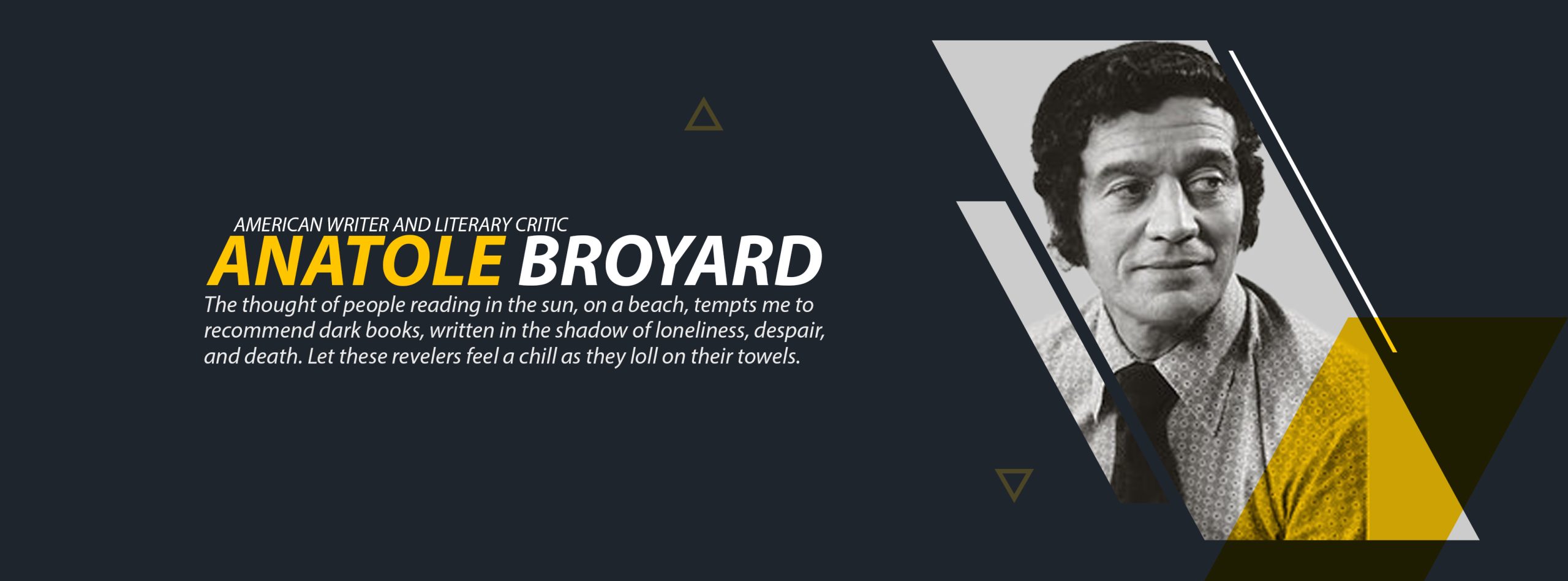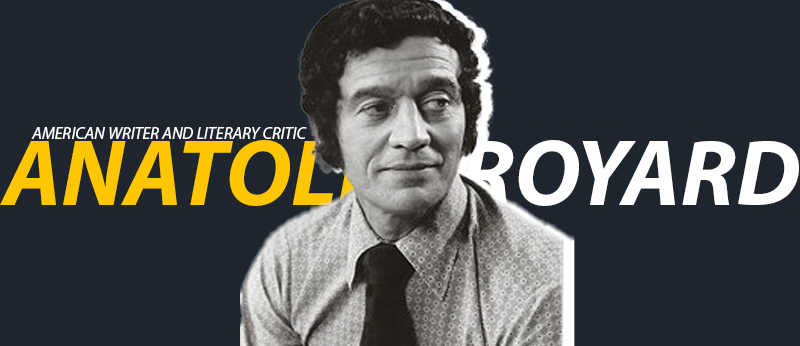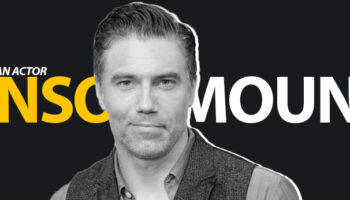Top 10 most inspiring quotes by Anatole Broyard
- The contents of someone’s bookcase are part of his history, like an ancestral portrait.” (About Books: Recoiling, Rereading, Retelling, New York Times, February 22, 1987)
- Two people making love, she once said, are like one drowned person resuscitating the other.
- There was a time when we expected nothing of our children but obedience, as opposed to the present, when we expect everything of them but obedience.
- A book is meant not only to be read but also to haunt you, to make you feel like a lover or a parent, to be in your teeth like a piece of gristle.
- I feel about lending a book the way most fathers feel about their daughters living with a man out of wedlock.
- If a book is really good, it deserves to be read again, and if it’s great, it should be read at least three times.
- The contents of someone’s bookcase are part of his history, like an ancestral portrait.
- Paranoids are the only ones who notice things anymore.
- When we were in bed, the only part of me she touched was my penis, because it was the most detached.
- The thought of people reading in the sun on a beach tempts me to recommend dark books written in the shadow of loneliness, despair, and death. Let these revelers feel a chill as they loll on their towels.

Anatole Broyard (1920–1990) was an American literary critic and writer known for his insightful contributions to literary journalism. Born in New Orleans, Broyard’s career took off in the 1940s and 1950s, when he became associated with the Greenwich Village literary scene. He served in the U.S. Army during World War II and later settled in New York City.
Broyard gained prominence as a critic for The New York Times, where he worked for more than two decades. His reviews were characterized by a distinctive blend of erudition and wit. Despite his significant influence in the literary world, Broyard’s most enduring legacy may be his own writing. In 1992, two years after his death, a memoir titled “Kafka Was the Rage: A Greenwich Village Memoir” was posthumously published. The memoir provided a personal account of his experiences in the bohemian intellectual circles of Greenwich Village during the 1940s.
Notably, after his death, it was revealed that Broyard had African ancestry, a fact he had concealed throughout his life. This revelation sparked discussions about race, identity, and passing in America. Anatole Broyard’s life and work continue to be studied for their impact on literary criticism and the complexities of personal identity.
👉Listen to the best music from all over the world at www.liveonlineradio.net #Anatole_Broyard #quotes #FM #Online_radio #radio #live_online_radio #live #world_radio





